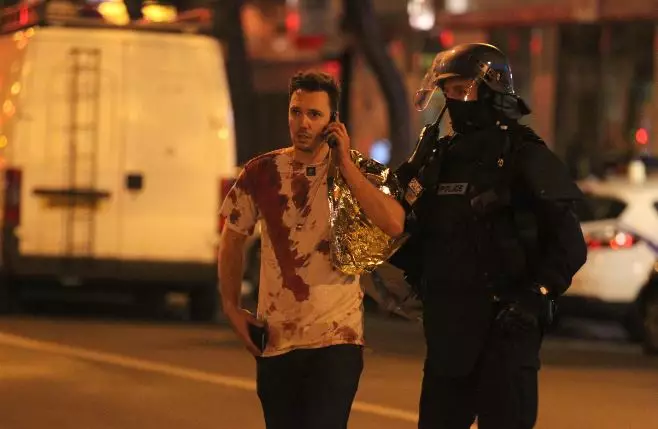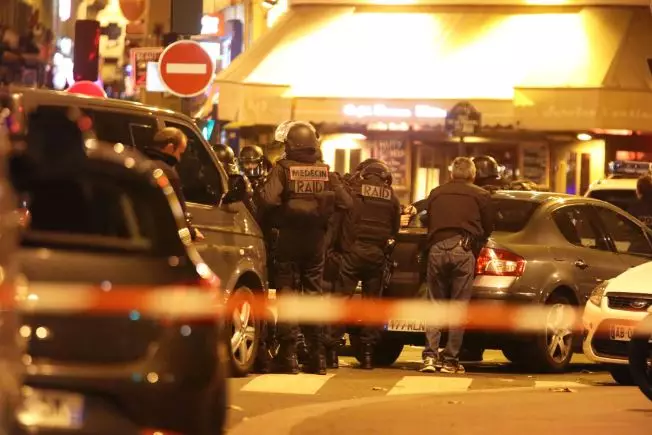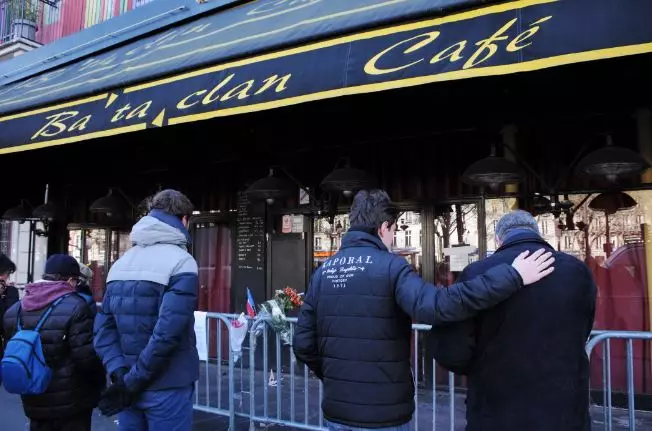
Today marks the second anniversary of the horrendous terrorist
attacks in Paris, and it provides an opportunity to reflect on the manner in
which the world has changed in the intervening time.
The Paris attacks, which tragically caused the death of 130 people, were the deadliest attack on French soil since World War II and the biggest terrorist attack in Europe for over a decade since the Madrid bombings of 2004.
Eighty-nine people were killed in the Bataclan Theatre while the metal band Eagles of Death were performing. Two members have played a surprise gig in Paris today to mark two years on from that horrific night. Singer Jesse Hughes and guitarist Dave Catching performed 'I Love You All the Time' and 'Save a Prayer', which was the last song they played before the shooting happened.

Credit: PA Images
Advert
Paris' attack marked the beginning of a new wave of terror in Europe. After the Bataclan attacks came incidents in Brussels in March 2016, Nice in July, Berlin in December, Westminster in March 2017, Manchester in May and Barcelona in August.
The perception of terror all over Europe was huge. Pre-Paris, the narrative had been about the influx of refugees into Europe that had begun in 2014 and reached a peak in 2015. Afterwards, terrorism was centre stage.
Of course, it was not the refugees who committed the Paris attacks. Seven of the nine attackers, including the ringleaders, were French. Those who carried out the atrocities in Manchester, in Nice, in Brussels and in Barcelona were all long-term residents of Europe and none of those responsible had moved to Europe as part of the 2015 migrant crisis.
The thing that united them was their affiliation to ISIS, which required no participation from ISIS itself. The Paris attackers had fought in Syria, but there was no requirement to have had any previous involvement with terrorist groups to become an ISIS terrorist.

Credit: PA
Advert
Committing an attack in the name of ISIS would usually see it claimed by the terror group. It's noticeable that they have claimed many other atrocities - the Las Vegas shooting massacre, for example - that have had nothing to do with them.
The result of this is the perception exists that terror is everywhere and can strike at any time. Jihadists could be recruited online, commit atrocities and then be claimed after the fact.
Moreover, terrorist attacks no longer need to be successful in order to be successful: as long as the public perception of terror continued. Then it didn't actually matter if the terrorist carried out an atrocity.
What has notably changed since 2015 is that ISIS has largely fallen in Syria. The slow advance of Iraqi and Kurdish forces have liberated key cities like Mosul and Raqqa, which has removed the outer lining of success from the organisation. Now, its leader Abu Bakr Baghdadi is largely presumed to be dead and its size reduced to 10 percent of what it was at the time of the Paris attacks.

Credit: PA Images
Advert
Does that mean that terror is over? Of course not. Most of the terrorists were inspired by ISIS rather than - like had been the case with Al-Qaeda, for example - recruited and trained specifically. So, while the lack of a place to train them in Syria has damaged ISIS's capability to act, most of those who have committed atrocities in the last two years were not trained anyway. The Paris attackers were an exception in that regard.
Does it
mean that anti-terrorism actions have been successful? Probably not either.
Placing barriers to terrorism - more police, more searches - can limit the
destruction of an attack, but the basics of a terrorist attack itself cannot be
predicted until they occur, by which point the attackers' goal of creating
terror has already been achieved.
While the Jihadist goals of the Paris attackers were well known, the wider societal aspects that made them open to those ideas - poor life opportunities, social alienation, under or unemployment - are as bad as they were before. As long as they exist, so will terror.
Words: Mike Wood
Featured Image Credit: PA ImagesTopics: Paris, terror attack